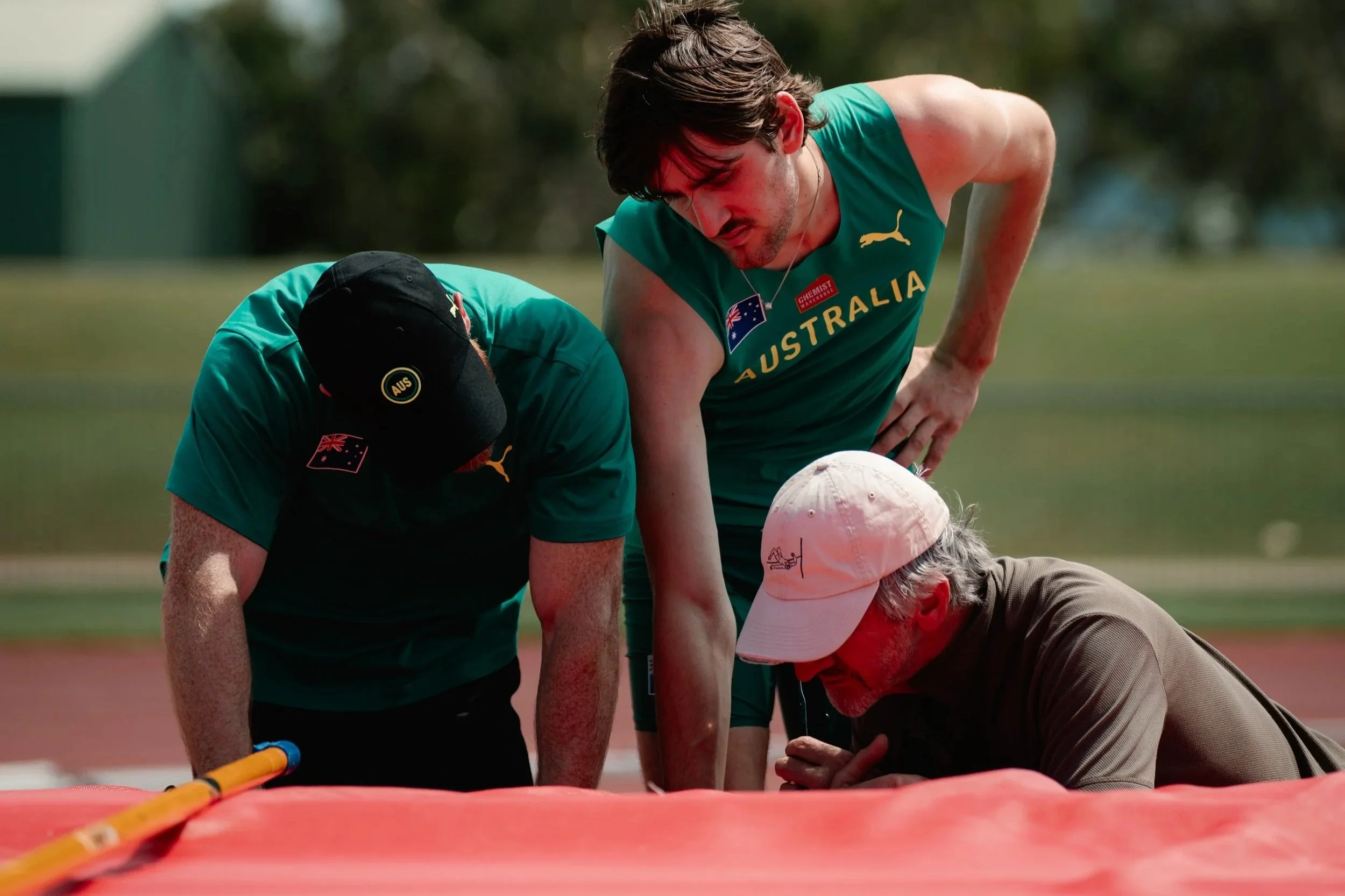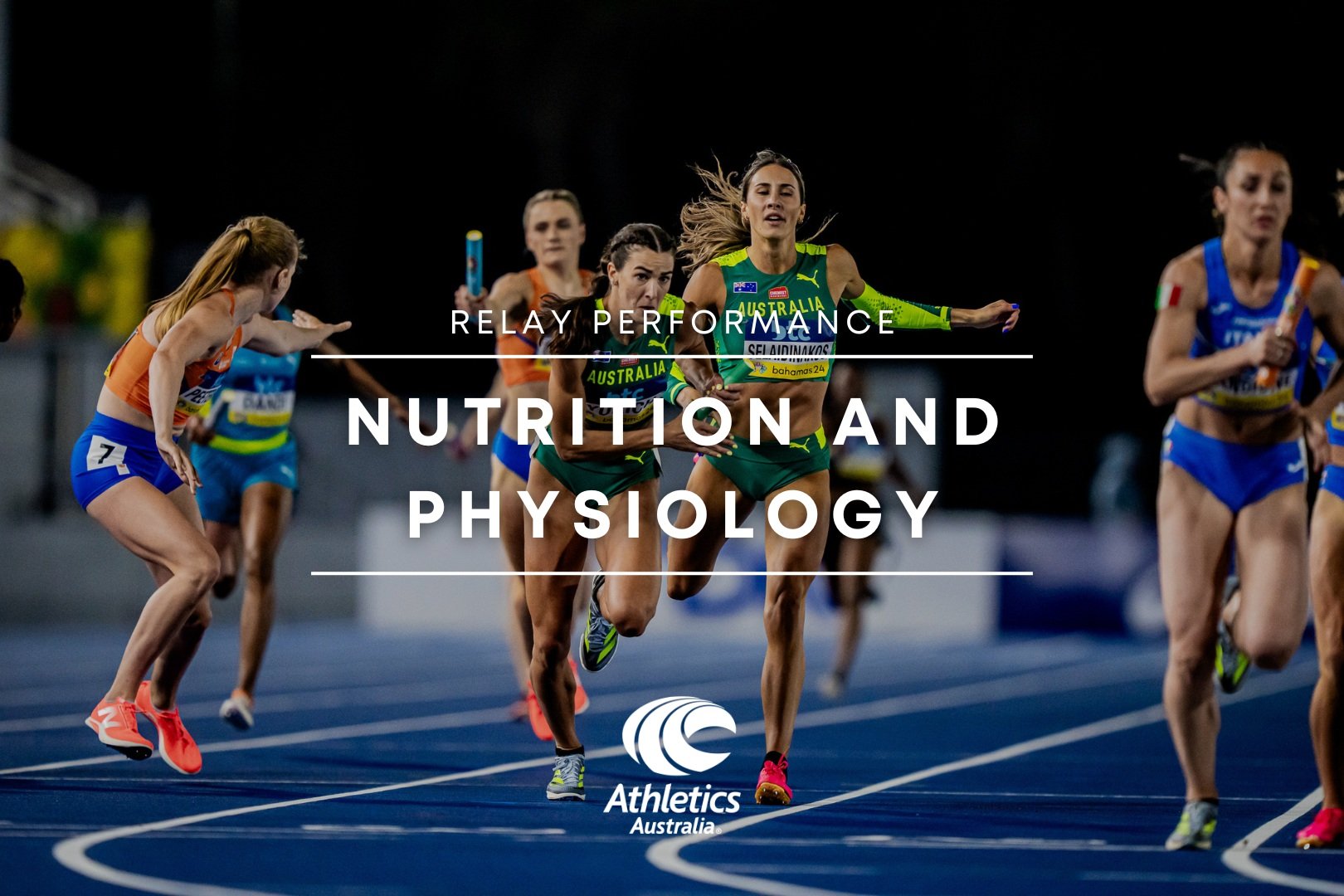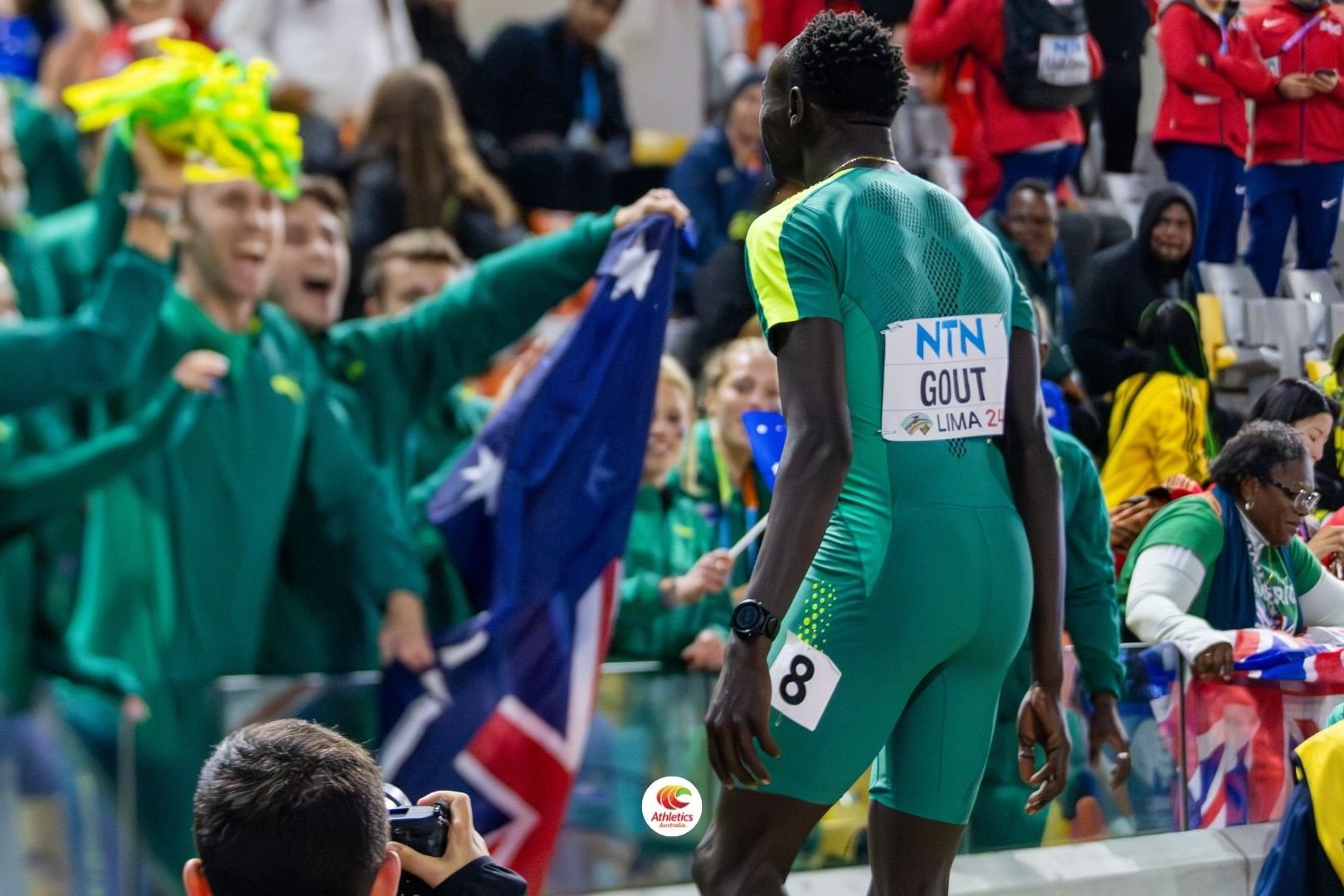Coach Education Resources

Weight Loss Drugs and Coaching
Weight-loss medications such as Ozempic and Mounjaro are becoming increasingly common among runners, from recreational participants to masters athletes. This article helps coaches understand how these drugs work, their potential impact on training and competition, and what to monitor when supporting athletes who use them.

The Coach as Architect and Performer: 12 Behaviours for Success Under Pressure
Cliff Mallett distils a four year AIS study that interviewed 12 elite coaches and eight athletes to reveal what great coaching looks like under pressure. Hear how coaches act as Architects and Sculptors of the training environment and as Performers in competition, with 12 clear behaviours that lift your performance.

How This Coaches Eye Checklist Might Be the Kickstart Your Next Season Needs
Ever feel like you know where your athlete’s at but struggle to put it into words, or turn that instinct into a clear coaching plan? The Coaches Eye Tool is here to help. This simple but powerful observation tool helps track key areas like physical readiness, mindset, effort, and technical consistency all in one place.

Reflecting after the Australian Athletics Championships
In this short post, we introduce the Good–Better–How framework—an easy, effective way for coaches to reflect on their performance at the Australian Athletics Championships and beyond. Whether your athletes medalled or gained experience, this tool will help you grow from every competition.

Why Attentional Focus is Your Essential Coaching Tool
Want to help your athletes move more efficiently, and actually retain what you coach? This articles explores the science of attentional focus and why how you cue matters just as much as what you coach.

Helping Athletes Adapt to Travel, Time Zone Changes, and Competing Away from Home
With the 2025 National Championships in Perth approaching, our coaching community shared their best strategies for helping athletes adapt to long travel, time zone changes, and competing away from home. From adjusting sleep schedules and managing travel fatigue to maintaining familiar routines and supporting mental readiness, experienced coaches provided practical, battle-tested insights to help athletes perform at their best. Whether it’s hydration, movement, light exposure, or simply embracing travel as a learning experience, this summary captures the key takeaways to help coaches and athletes navigate competition travel successfully.

Cracking the Code of Adolescent Athlete Development: What Every Track and Field Coach Should Know
Navigating the wild ride of adolescent athlete development can be a challenge for track and field coaches. One moment, your athletes are improving by leaps and bounds, and the next, they’re struggling with coordination and stagnating in performance. This article dives into the science behind these changes—why boys experience explosive gains post-puberty, why girls may hit a plateau, and how to tailor training to capitalise on critical windows of development.

Why You Should Rethink Saying "I'm Proud of You" to Your Athletes
Athletes receive plenty of external validation—parents, teachers, and friends all tell them they’re proud. But if an athlete begins to associate success with pleasing others, their motivation can shift from self-driven to externally dependent.
Hear from Peter Hannan on why he doesn’t say “I’m Proud of You” to his athletes, and suitable alternatives that he uses with his squad.

Coaching in Hot Weather: Practical Strategies from the Community Brainstorm
In our January Community Brainstorm, experienced coaches from across the country shared their tried-and-tested strategies for keeping athletes safe while maintaining training quality. Their insights highlight key adjustments in training scheduling, hydration, cooling strategies, shade, and alternative session planning.
Find great practical strategies for adjusting training in hot conditions in this article.

Managing Difficult Parents - Advice from the Athletics Coaching Community
This article explores strategies for managing "overbearing" parents in athletics coaching, drawing on insights shared by experienced coaches during the December Community Brainstorm. From setting clear boundaries with a parent code of conduct to fostering trust through open communication, the article highlights practical ways to turn parental involvement into a positive force. It also addresses the importance of coach well-being, offering advice on balancing professional responsibilities with self-care. Whether you're a new coach or a seasoned mentor, these tips provide valuable guidance for creating a supportive and productive training environment.

The Pathway to the Top
Di Huxley shares her research on what it takes to help athletes progress from juniors to elite seniors. She emphasises how crucial it is to truly know your athlete—not just their physical abilities but also their psychological and developmental needs. It’s about building trust, aligning your coaching goals with their readiness, and being flexible enough to adapt. She shares examples of how this approach can either nurture an athlete’s talent or, unfortunately, push them away.

Nutrition and Physiology 101
The presentation focuses on optimising performance and recovery during the upcoming January Relay camp in preparation for future competitions like the World Relays.
Key topics include the importance of hydration, nutrition, and central nervous system (CNS) recovery. Practical strategies are outlined, such as tracking fluid loss through pre- and post-training weighing, prioritising recovery snacks and ice baths, and managing heat exposure during training in hot and humid conditions.

‘The Six Absolutes’ - Essential Tools for Your Coaching
One of the most effective tools I’ve come across in my coaching journey is the Six Absolutes. These principles, created by Dr. Greg Shepard, are the backbone of my approach to teaching technique on the track and in the gym. They’re simple enough to apply straight away, yet powerful enough to transform how athletes perform and avoid injuries.

The Athlete Archetype Framework
A Totally Unscientific Way of Thinking About Different Athletes’ Needs and Motivations.
This guest article explores three ‘athlete archetypes’ and how the writer adapts their coaching style depending on the type of athlete they are working with.

Sharon Hannan: The Coach Who Built Communities, Not Just Champions
"It wasn’t just about athletics—it was about bringing people together, building relationships, and giving kids and families a place to belong."
Discover the driving influences behind one of Australia’s most successful athletics coaches of all time, Sharon Hannan.

Engagement, Connection, and Inspiration in Coaching
Explore the art of coaching through Wayne Goldsmith’s perspective, focusing on building genuine connections, fostering engagement, and inspiring athletes beyond mere physical training. Goldsmith highlights a concerning global decline in youth sports participation, arguing that traditional, metric-driven coaching approaches often miss what truly motivates young athletes: meaningful relationships and a sense of purpose.

Community Brainstorm: December 2024
The Community Brainstorm is a monthly forum where we tackle key coaching questions together, drawing on the collective wisdom of our coaching community. Each month, we highlight a real-world challenge, inviting coaches to share insights, strategies, and resources that help others navigate common issues in track and field coaching. Join us in building a stronger, more connected athletics coaching community.

Di Sheppard’s Holistic Approach to Success On and Off the Track
Di Sheppard, the influential coach behind rising Australian track star Gout Gout, has built a career grounded in authenticity, resilience, and a no-nonsense coaching philosophy. Known for her direct approach, Di prioritises both athletic skill and personal growth, creating a training environment that demands accountability and independence from her athletes.
Learn the secret behind her success in this feature article on one of Australia’s most talked about track and field coaches.

The Whole Athlete and Training Program
This High Performance Town Hall explores the importance of a comprehensive training program for athletes, focusing on the “whole athlete” and the role of communication, and planning.
Master Coach, Susan Hobson, and AA Dietitian Lead, Bryce Anderson, highlight the crucial elements beyond just physical training, including nutrition, sleep, recovery, and mental health, and how these should be integrated into the program.

Using Effective Coaching Cues
For track and field coaches and athletes, coaching cues are a great tool for instructing and reinforcing the desired skill components.
However, there is strong evidence to suggest that not all cues are equally effective.
This article delves into the critical role of coaching cues – specifically, external and internal cues – in shaping athletes' performance, including their ability to develop and retain newly acquired skills.

